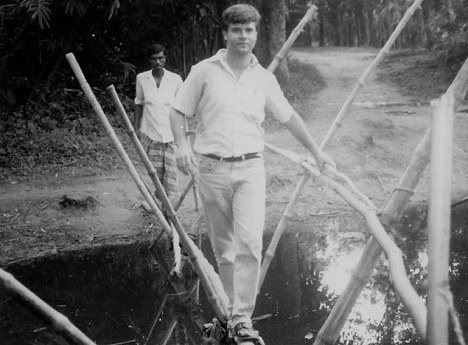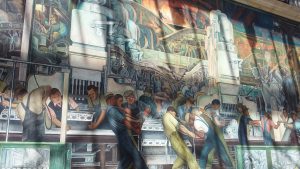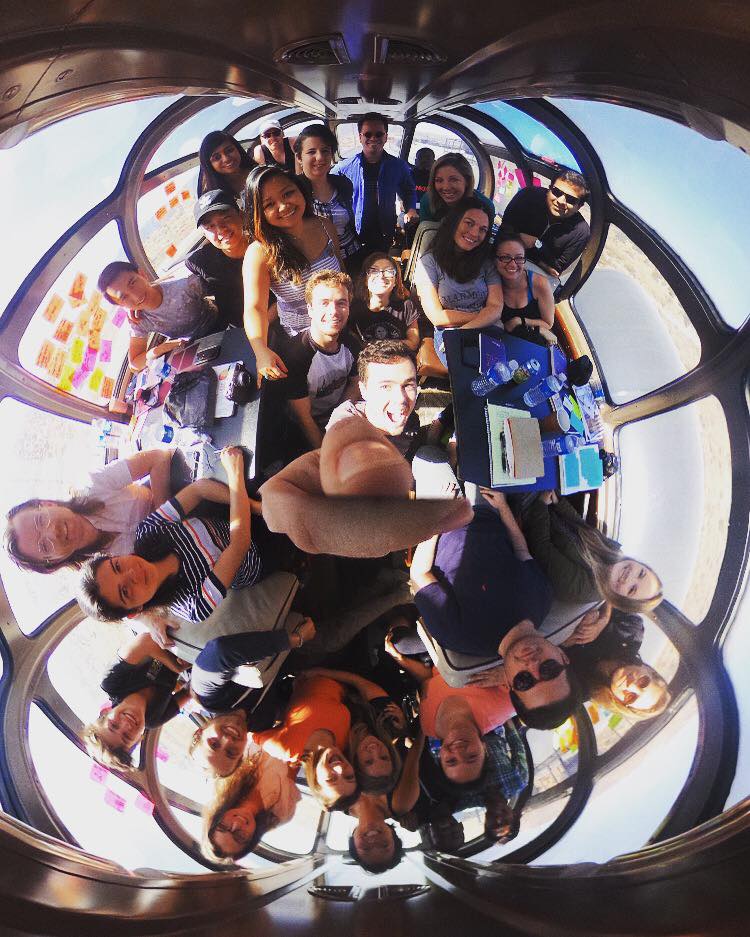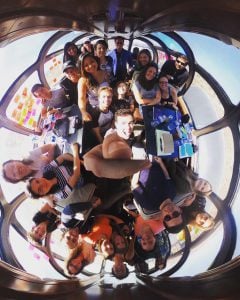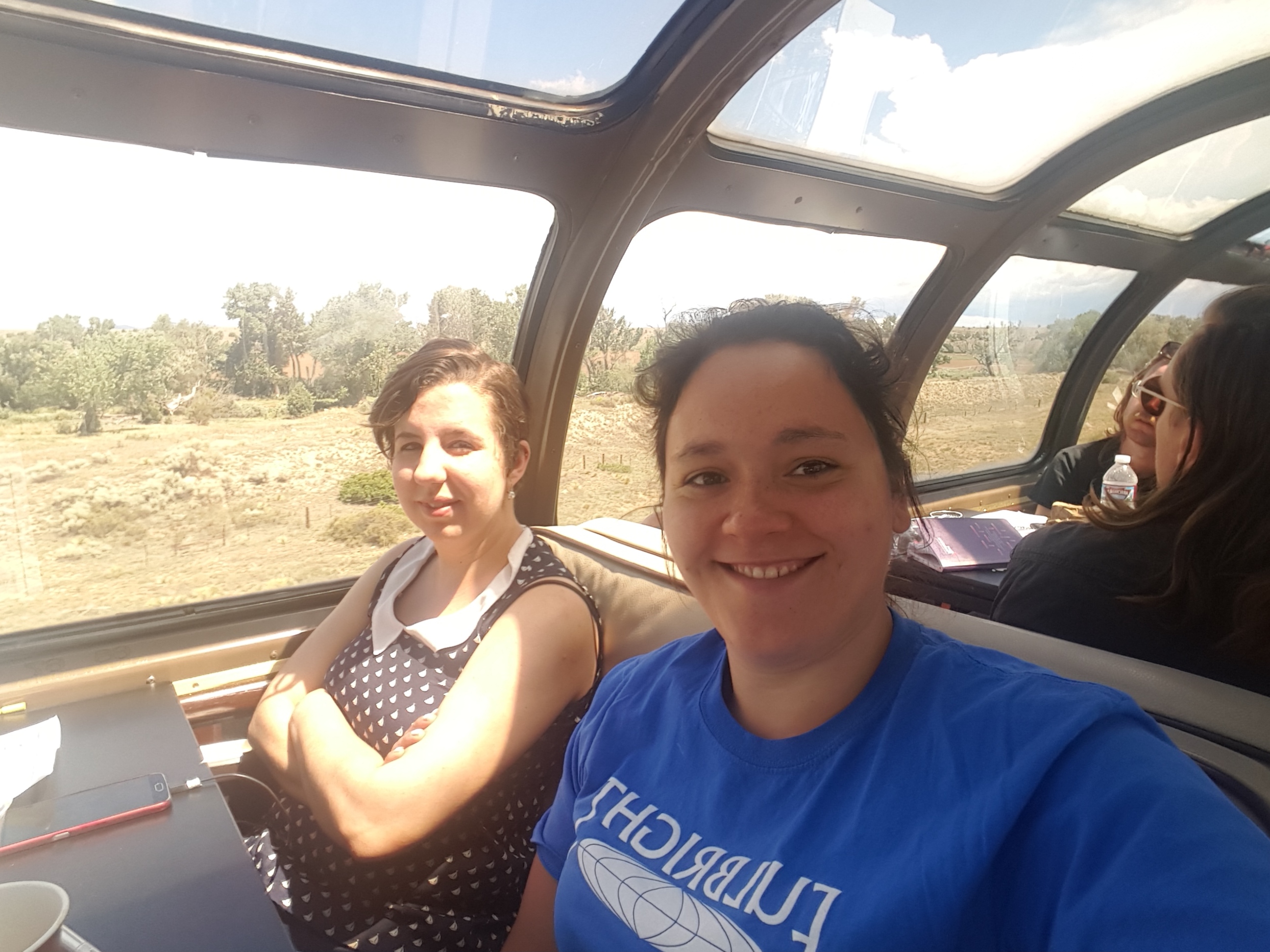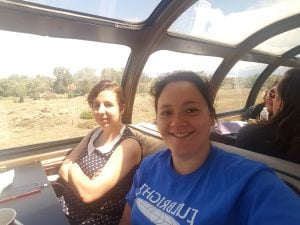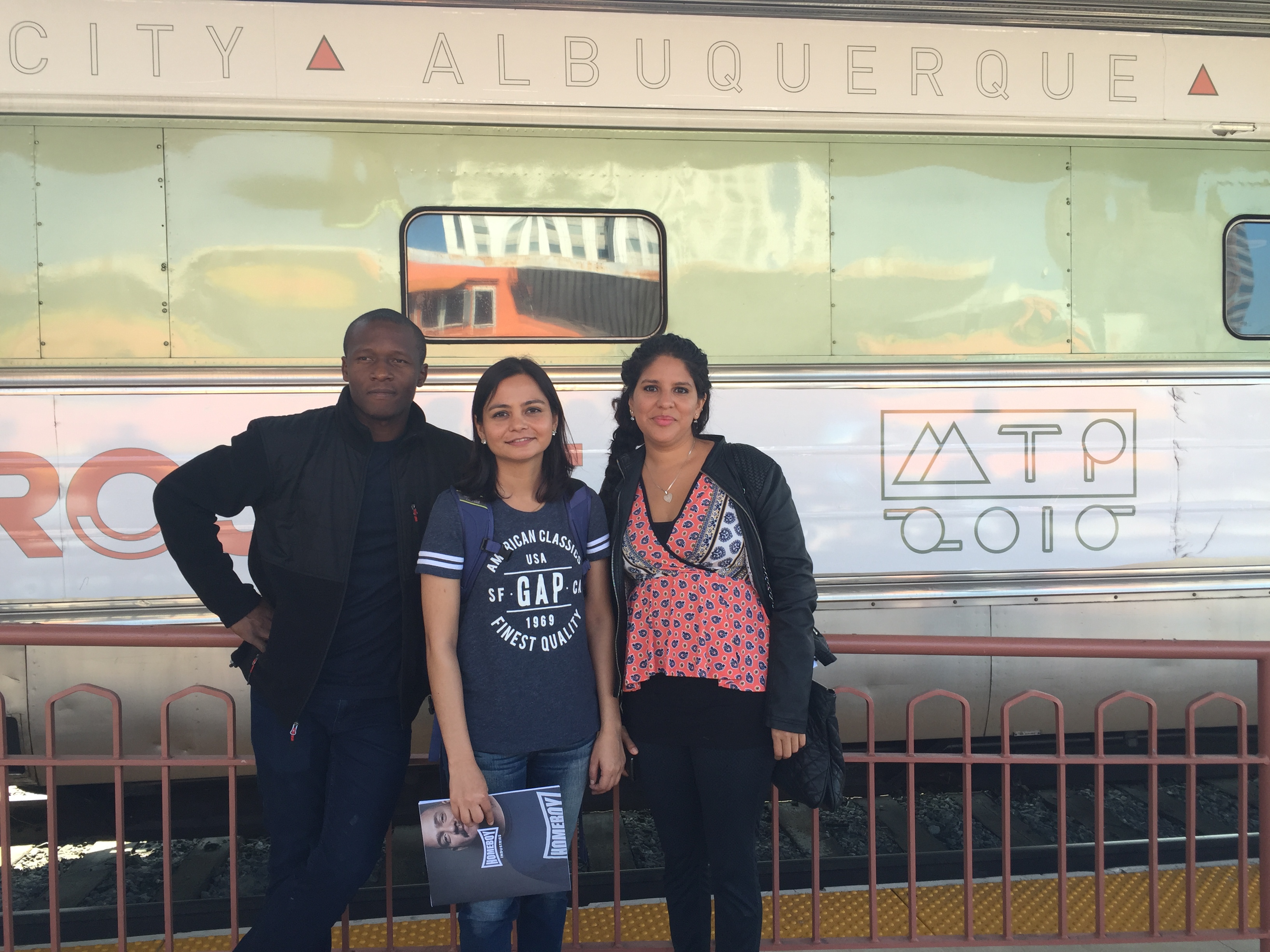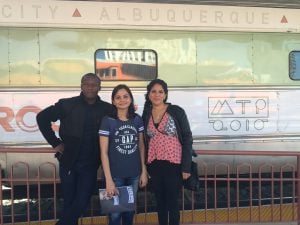In the spirit of Martin Luther King, Jr. Day, we are re-posting an article from Fulbright Foreign Student from India Lakshmi Gopalakrishnan, who through the Millennial Trains Project, explored the challenges faced by South Asian immigrants in several U.S. cities. We hope that the Fulbright community is inspired by Lakshmi Gopalakrishnan’s – and Martin Luther King, Jr.’s – work in fostering positive change in their host and home communities.
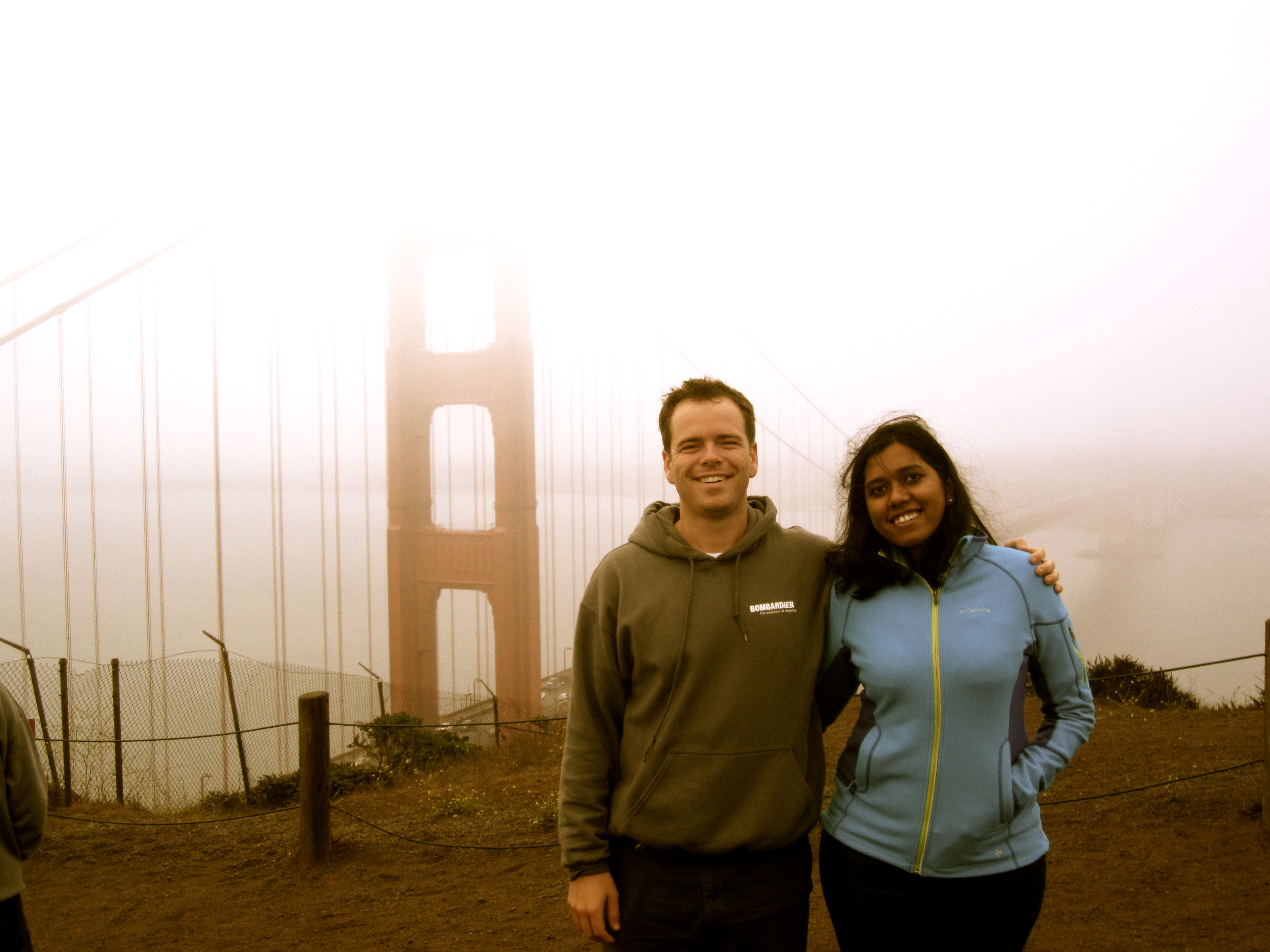
Fulbright U.S. Student alumnus to India, and Millennial Trains Project founder, Patrick Dowd, (2010-2011, left), and Lakshmi Gopalakrishnan, 2012-2014, India (right), near San Francisco’s Golden Gate Bridge
I came to the United States from India over a year ago on a Fulbright Foreign Student Program grant to pursue a master’s in public health at the University of North Carolina at Chapel Hill (UNC), the country’s oldest public university. I was given this unique opportunity not just to study public health, but to also experience all the diversity American culture and its people have to offer.
So far, my academic experience at UNC has opened my eyes to limitless possibilities. From classroom discussions, seminars, and volunteer work, to my summer practicum at IntraHealth International, each experience has further solidified my understanding and commitment to public health. Within the field, I am specializing in maternal and child health. My research interests are in program monitoring and evaluation, strengthening existing health systems, improving water quality and sanitation, and health programs for adolescent girls. Upon my return home, I plan to work for a non-governmental organization where I can design and implement programs while enhancing government health systems.
Aside from my studies, I have participated in many multicultural potlucks with other students, celebrated Halloween and Thanksgiving with American and international friends, and engaged in community health issues through a local health clinic. I feel blessed to have experienced a slice of Southern hospitality in North Carolina. My Fulbright grant has also allowed me to dispel myths surrounding Indian-Americans and South Asian immigrants in the United States.


